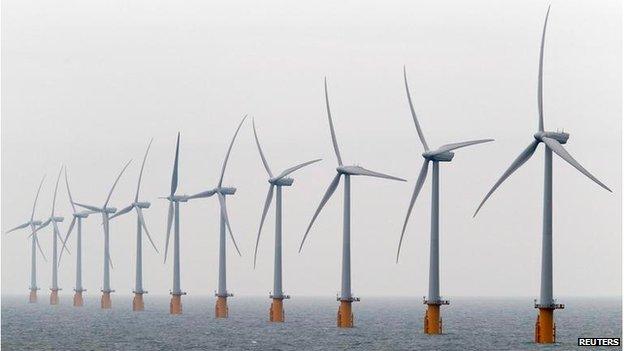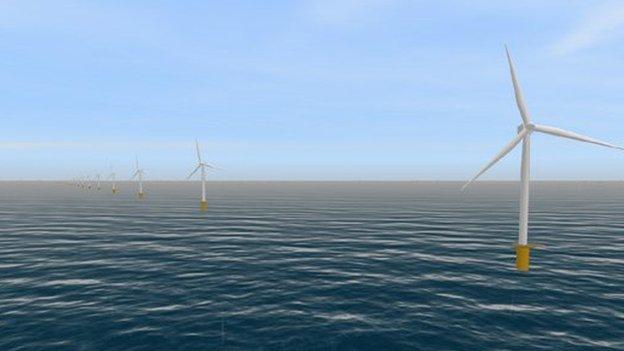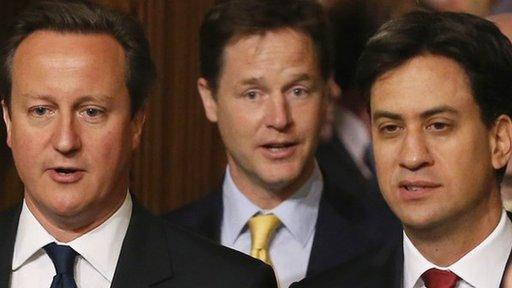Solar loses out in renewables auction
- Published

The winners have just been announced in the UK government’s first auction for subsidies on renewable energy.
Previously ministers have made a judgment on how much support each technology needed to thrive.
This is the first time the technologies have been forced to bid against each other for government support.
The solar power industry says it has suffered a huge blow from its cut in support.
Offshore wind, still in relative infancy, is the biggest winner with 1,162 megawatts receiving public support to 2019. Onshore wind will get support for 749MW.
The biggest loser is solar, with public support for just 71MW – a figure that the industry says will result in a big drop in its market.
Solar is expected eventually to become the top source of energy globally by 2050, external as the technology continues to improve.
Costs have fallen 70% recently - thanks partly to huge German subsidies that attracted venture capitalists and drew Chinese manufacturers into the market. But the industry says it is not quite ready to compete without subsidy yet in the cloudy UK.
Falling costs
Leonie Greene from the Solar Trade Association told BBC News: “This is incredibly bad news. We cannot understand why support is so little.
“Solar is massively popular with the public and will compete with fossil fuels by the end of the decade if it is helped along the way. Today’s decision appeared to be skewed in favour of the big energy suppliers who dominate the market.”
Subsidy costs for solar in the UK have already been slashed as costs fell much faster than predicted.
It is impossible for ministers to tell exactly how much subsidy is really needed for any technology as all industries talk up their need for subsidies. The government needs renewables to meet targets on energy supplies and climate change.
It has already been criticised by MPs for doling out most of its subsidy pot to a handful of high-profile projects without competition.
The government says the projects approved today could power 1.4m homes. It says the auction has driven down prices and could save £110m a year in subsidies, giving consumers better value for money.
The subsidy for solar was 58% less than it would have been without competition, the government said – although Ms Greene said she was not sure if solar power could be built at the price currently on offer.
The subsidy for offshore wind will cost 18% less than previously, and onshore wind 17% less. The idea is for new technologies eventually to stand on their own feet without subsidies when they reach maturity. Critics point out that nuclear power is still being heavily subsidised more than 60 years after it started producing energy.
- Published17 February 2015

- Published14 February 2015

- Published7 January 2015
